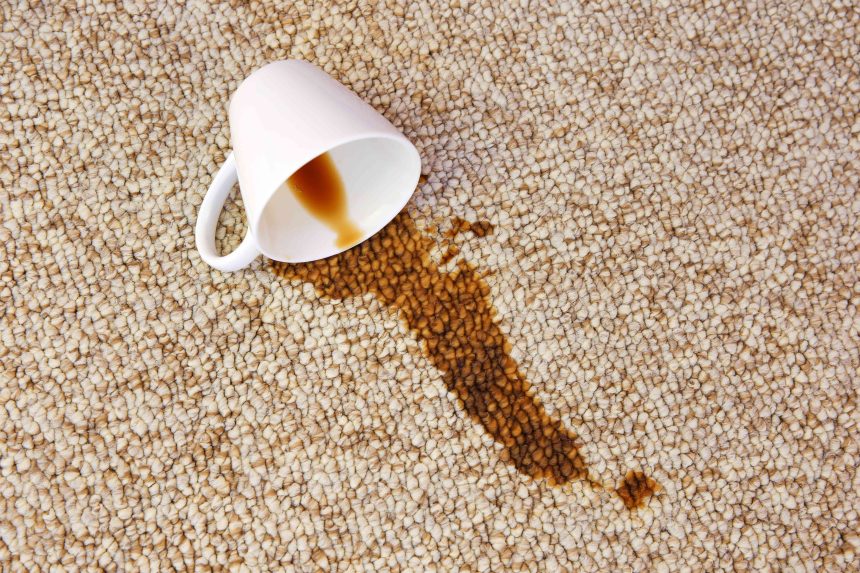If you walk into your house and your home smells less than fresh, you’re probably quick to check the usual suspects: your bathroom, your garbage can, your dirty laundry, and your pets. (Generally, my dogs are the most likely source of a foul odor in my house.)
But if you’ve ruled all those out, you’re left to wander around and follow your nose—and it can be tricky to pinpoint the exact source of the stink.
Not to worry: We turned to the experts to suggest some other places to sniff to root out the cause of your household funk—and how to fix the smell once you locate its source.
Forgotten Food
If the smell emanates from your kitchen, old and rotten food may be the culprit—especially things that may have slipped to the back of the cabinet or fridge where they’ve been out of sight and out of mind (and left to fester!). “In my line of work, weird smells are kinda the norm, so I’ve got a whole list of things I’ve found in ‘oh, that’s what’s been causing that god-awful smell’ moments,” says Cian Ballentine, professional cleaner and founder of Cannonball Cleaners. “The ‘shoved in the back of the pantry forgotten-about sack of potatoes or onions’ is classic.”
Your solution: Do a good deep clean of the fridge and your pantry to see if you can sniff out the culprit, and clean up any mess it left behind.
Hidden Mold or Mildew
In general, water can be a big culprit for bad smells—as it creates a breeding ground for bacteria, mold, mildew, and other smelly (and unhealthy) microbes. “Pay extra attention to anything that has water or moisture,” says Jamie Hord, founder of Horderly. “Areas like kitchens, bathrooms, laundry rooms, and basements are usually the main culprit areas.”
Your solution: If the mold or mildew is somewhere you can access—like on a wall that was hidden behind furniture—you can use proper cleaning techniques to help get rid of it. But if it’s a large amount of mold, or it’s inaccessible behind the walls, you’ll likely need to get professional help to take it on.
Washing Machine
Your washing machine may seem like it shouldn’t smell—after all, its sole purpose is to make things cleaner. But all that water, soap, and laundry grime can create a perfect habitat for bacteria (and a not-so-fresh funk). “The washing machine can quickly cause smells if not aired out or cleaned regularly,” Hord says.
Your solution: Give your washing machine a deep clean. And for front-loading machines especially, make sure you leave the door open between washes to allow it to air out—that’ll help keep the bacteria from thriving.
Dishwasher—Especially the Filter
Water plus old food can create a feast for bacteria. Since crumbs and large particles of food end up stuck in your dishwasher filter, they can become the source of a very bad smell.
Your solution: If you don’t remember when you last cleaned your dishwasher filter, this is your sign to take care of that now. You should also go ahead and give the whole dishwasher a good scrub to ensure it’s stench- and ick-free.
Untreated Stains or Spills
If you have pets, kids, or other folks who may not clean up well (or at all) after they make a mess, you could end up with a lingering odor. While urine may be the worst offender, even things like coffee or tea can start to give an off, musty odor if they’re left to sit. (And they may not be noticeable on dark upholstery or a highly patterned rug.)
Your solution: Sniff your upholstery and rug to see if you can pinpoint exactly where the smell begins so you can spot treat it—or go ahead and give your sofa and rug a deep clean.
Coffee Machine
If your coffeemaker doesn’t get cleaned correctly, coffee grounds can cause a sludgy residue—creating a very funky smell, Hord says.
Your solution: Give your coffee maker a regular clean to help keep it (and your daily brew) fresh.
Dead Animals
Household pests like mice—or even larger animals like raccoons—can end up dying within the walls, garage, or attic of your house—and the smell can be pretty hard to miss.
Your solution: It can be difficult to pinpoint exactly where in the wall the critter found its final resting place. So unless you can see the carcass, it may not be worth the expense and effort to open up a wall to find the culprit—and most pest control experts recommend leaving it and masking the sent with deodorizer for the two weeks it may take for the animal to decompose.
If the dead animal is somewhere you can access, wear masks and gloves to minimize your exposure to the animal and any potential bacteria or parasites it may harbor, and use a disinfectant (like a bleach solution) to clean the spot.
You can also contact an animal removal company to do the removal and cleaning for you.
Bags and Backpacks
That zipper can only contain the smell of something bad for so long. So if you’re noticing the odor right as you walk into your home, it may be worth searching in all your bags and backpacks near the door for something foul, Ballentine says. Common culprits include sports gear like yoga mats and sweaty workout clothes, shoes, and of course, old food or drinks.
Your solution: Clear out the culprit fast, and give both the offending items—like workout gear and food containers—and the bag a good deep clean.
Leaky Pipes
Both your water pipes and your gas pipes can cause bad odors—water pipes slowly, as mold starts to thrive on the standing water, and gas pipes relatively quickly, as the sulfur egg smell enters your home.
Your solution: If you’ve got that sulfur smell in the air, it’s an emergency—you need to leave your house ASAP and call your gas company or fire department to ensure that you don’t have a dangerous natural gas leak.
If you have a moldy, wet smell that seems to be emanating from your walls, you’ll need to call in a plumber to fix the water leak, and pros to handle the mold.
Dry P-Trap
If you’ve ever looked beneath your sink, you’ve probably seen that U-shaped bend that dips below the rest of the plumbing. It keeps a little water in your pipes to serve as a barrier to block smelly sewer gases from entering your home through the pipes.(And it also can come in handy as a way to retrieve a ring or other item lost down the drain, as long as you haven’t rushed water through too forcefully!)
But if you haven’t run the water in a particular sink or shower in your house in a while, that water can slowly evaporate and allow some of the sewer gas to make its way into your home.
Your solution: This is an easy one. You’ll want to ensure that all the sinks and showers in your home are used weekly, so there’s always a fresh supply of water keeping the sewer smell at bay. If you’re going away for a few weeks, you can pour a tablespoon or two of mineral oil into the drain to help slow the evaporation process.
Electrical Problems
If you’re getting a fishy odor in your home—and you didn’t serve salmon recently—it could be a dangerous problem with your electrical wiring. (Melting wiring can create that smell!)
Your solution: See if you can track the smell down to a particular outlet or appliance, and stop using it until you can get an electrician in to check it out.








